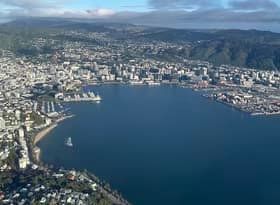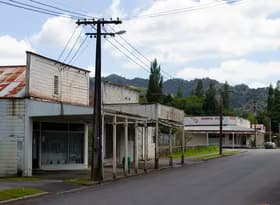Used car imports dependent on Japan’s future
New Zealand’s second-hand car market is highly dependent on imports from Japan. Japan is one of few large car-producing nations that also drives on the left-hand side of the road, making New Zealand a logical potential buyer of used cars. However, with economic headwinds in sight for the Japanese economy, and supply chain issues slowing down car manufacturing, it might be a while before New Zealand sees supply of vehicles from Japan being reinvigorated.
Japanese car policy boosted historical used car imports to NZ
Strong incentives for Japanese citizens to buy new cars has resulted in a glut of used cars for them to then export over the last decade, pre-pandemic. The Japanese government introduced “GREEN” vehicle purchasing promotion measures in June 2009, to incentivise the replacement of older vehicles for newer, more energy efficient ones and the outright purchase of newer cleaner cars. This policy was designed to promote eco-friendly transport as well as stimulate the Japanese economy which had been struggling after the Global Financial Crisis. After the New Zealand economy recovered from the Global Financial Crisis itself, the number of used car imports from Japan boomed, undoubtably with the help of car purchasing incentives in Japan which increased vehicle turnover. Between 2010 and 2015, used car imports from Japan to New Zealand doubled, and held at higher levels throughout the second half of the decade (see Chart 1).
In 2021 the Japanese government raised the incentive for purchasing electric vehicles to a payment of up to 800,000 yen (NZ$9,180), which will increase the availability of electric vehicle in the New Zealand used car market in a few years as second-hand cars filter through.
Japanese car market on struggle street
The Japanese domestic car market suffered its ninth consecutive month of decline in March as the world’s third largest economy is dealing with the reverberations caused by the COVID-19 pandemic. Car registrations in Japan for the March quarter were down 16%pa. The near future doesn’t look like it’s improving a great deal either. Consensus forecasts have recently downgraded Japan’s expected economic growth for 2022 from 3.1% to 2.8%, which is slow considering it was meant to be a year of recovery as the COVID-19 pandemic subsides.
Supply chain issues have been particularly problematic for car manufacturing because the production process is so globalised. Strict lockdowns in China, particularly in Shanghai at present, are disrupting ports and supply chains even more as the Chinese government continues to pursue a zero-COVID policy. Furthermore, sanctions imposed on Russia and fears that more restrictions will come have raised the price and limited the supply of metals used in car and chip manufacturing such as aluminium, palladium, nickel. These price rises and difficulties accessing input materials will make car manufacturers even more cautious and may slow production further.
Can New Zealand look elsewhere for used car supply?
According to Customs NZ, Japan supplied almost 95% of used car imports in 2021. Other minor but significant suppliers included Australia, Singapore, and the UK. These nations all have financial incentives for their citizens to buy clean cars, and they all drive on the left-hand side of the road.
India seems like another country that would logically fit the bill to provide New Zealand with used cars. They are the second-largest country in the world (by population, behind only China) that also drives on the left-hand side of the road. However, fewer than 100 used cars originally from India made it to New Zealand in 2021. India is not a particularly wealthy country, so their population is unlikely to upgrade their car that often, limiting the number of cars to turnover and export. Looking ahead though, India is focused on making electric vehicle manufacturing a core part of their economy and may become a more viable import option in the future as its economy develops. The Indian government recently announcing it would subsidise auto companies and drone manufacturers to a value of $US3.5b over a five year period to help boost clean car production. Something that is likely to be welcomed in a country that deals with horrific air pollution.
Looking deeper into where New Zealanders get their used cars from and why they come from those places makes it seem likely that a slow car turnover in Japan will lead to relatively weak used car imports from Japan over the next year or so. However, with renewed electric vehicle purchasing incentives from Japan there will likely be more electric vehicles hitting New Zealand’s shores over the medium term. How car purchasing incentives in Japan change over time will also be important to determining the supply of used cars here in New Zealand. Although clean car incentives have grown in many countries recently, as electric vehicles eventually become more price competitive there will be less need for such large financial incentives.






